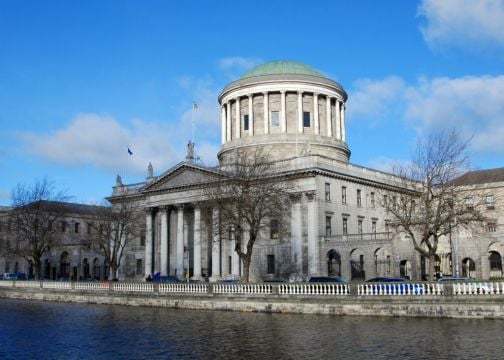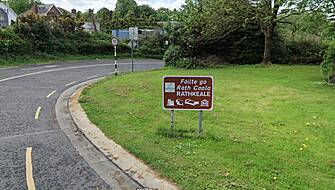There is “no question” of a human rights body’s action, alleging Ireland is failing to meet homeless asylum seekers’ needs, being heard before Easter, a High Court judge has said.
Ms Justice Niamh Hyland asked the Irish Human Rights and Equality Commission (IHREC) how it could seek an “urgent” hearing date during this legal term when it is looking to include 10 new affidavits in what will be “quite a different case” to what was originally mooted.
The move to withdraw affidavits based on accounts of anonymous international protection applicants and to replace them with 10 newly sworn statements from named applicants is “unusual”, the judge said.
She will read the fresh documents before deciding whether they should be added.
She said she gave permission last December for the rights watchdog to pursue its claims based on the affidavits originally presented to her but now a “different course” is being charted.
The State must have an opportunity to respond to the proposed introduction of “very substantial, different evidence”, she added.
Patricia Brazil SC, for IHREC, said the orders sought by her client do not rely on the 10 new documents but on a central affidavit sworn by the chief commissioner, Sinéad Gibney.
This affidavit remains in the case, although an excerpt that references claims from anonymous homeless asylum seekers has been withdrawn alongside other affidavits based on anonymous accounts.
This, and the attempt to file 10 new sworn statements, comes in response to the State parties taking issue with the anonymisation of the asylum seekers whose accounts were referenced by the commission, she told the court.
The case continues to be the one that was originally pleaded: that the State is failing in its obligations to meet the needs of the international protection applicants who are left homeless upon arrival, she said.
As this is a “representative action” brought on behalf of a fluid population of new arrivals, she said, the commission felt the court might want to receive references to the individuals facing these conditions.
David Conlan Smyth SC, for the Minister for Integration, the Attorney General and Ireland, said his clients are “very concerned” about IHREC’s “unorthodox” handling of the case.
While the State is not formally objecting to the inclusion of the 10 new filings, it “cannot consent” to the move, he said.
His clients will need time to address the range of new claims that are made in these affidavits.
Ms Justice Hyland said representative actions are “highly unusual” in the Irish legal system. She will decide next week whether to admit the new evidence.
The latest statistics from the Department of Integration show there are 742 adult males without accommodation.
IHREC seeks mandatory orders that would require the Minister to establish a system that vindicates the fundamental rights of applicants.
The State intends to argue it is meeting its obligations by providing the men it cannot accommodate with an enhanced payment of €113.80 per week along with other supports.
The High Court ruled last April that the Minister breached his obligations to provide “material reception conditions” to an Afghan asylum seeker who had to resort to begging when he was homeless upon arriving here last February.
Giving the homeless applicant a €28 Dunnes Stores voucher and addresses of private charities “does not come close to what is required”, Mr Justice Charles Meenan said.
IHREC has said the “crucial question” in its case is whether the subsequent €75 increase to the weekly payment, along with other supports, meets requirements.







